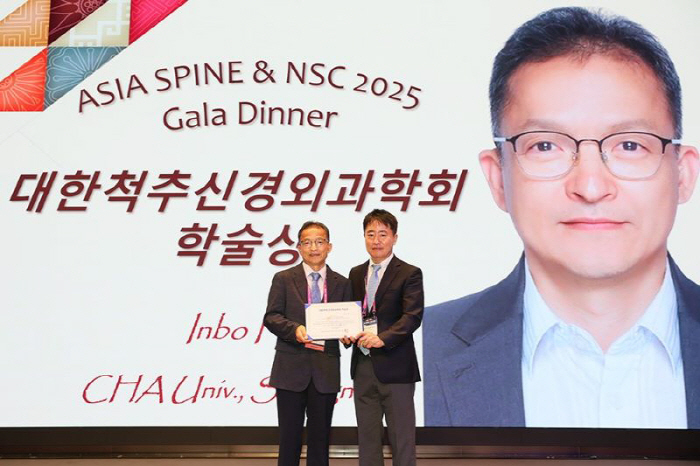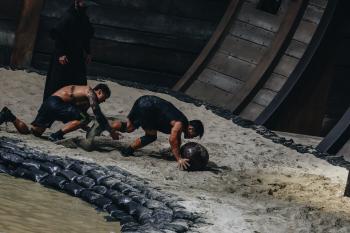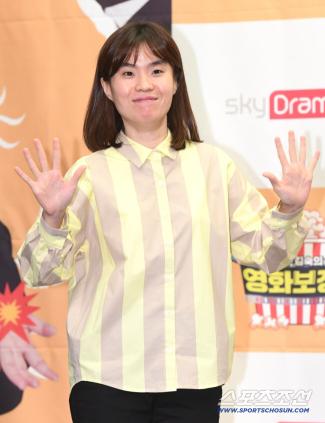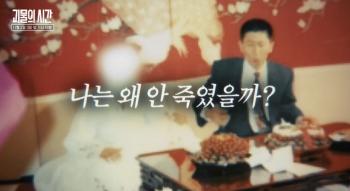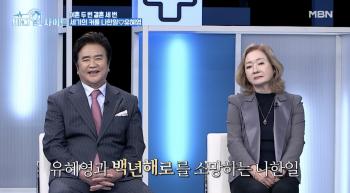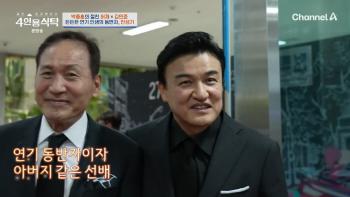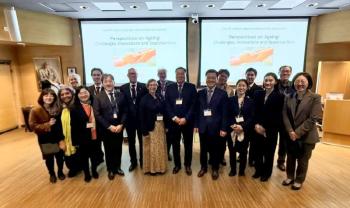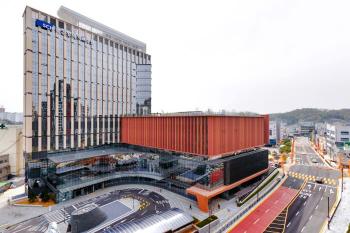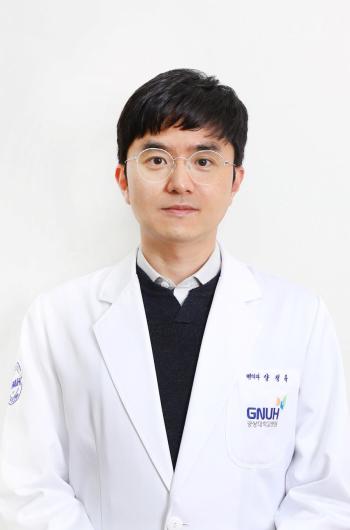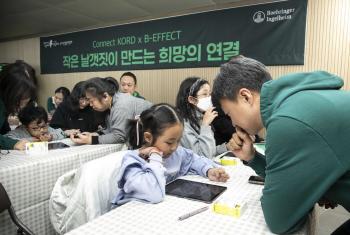Professor Han In-bo of Bundang Cha Hospital won the Academic Award for the second consecutive year at the Korean Society of Vertebral Neurosurgery
Nov 05, 2025
Professor Han In-bo of neurosurgery at Bundang Cha Hospital (Director Yoon Sang-wook) at Cha Medical University and Professor Lee Ki-beom of Rutgers University in the United States have developed an injectable biomaterial called BIOGEL (bioorthogonal hydrogel) that can induce regeneration by injecting it into the intervertebral disc defect of patients who have undergone partial resection of the disc nucleus.
The study was published in the international renowned journal 『Bioactive Materials』 (Impact Factor I: 20.3)" and was awarded the Korean Society of Vertebral Neurosurgery in recognition of its excellence.
The Korean Society of Vertebral Neurosurgery Academic Award is an prestigious award given to researchers who write research papers with excellent creativity and academic impact in the field of spinal neurosurgery, and selects and awards the most influential research regardless of the timing of the presentation. Professor Han In-bo received the same award in 2024 and 2025 and was honored as the first Korean society to win the award for two consecutive years.
Professor Han In-bo's team developed a biomaterial that prevents regression and promotes regeneration of damaged disk areas after 'disc nucleus partial resection'. The operation is to remove only a portion of the escaped or ruptured disc (the nucleus), and it is one of the most commonly performed spinal surgeries worldwide. However, in the past, there was no way to recover the disk by itself after removing the water nucleus. This study is a groundbreaking study that demonstrates that damaged disk tissue can be regenerated when BIOGEL is injected into the defect site after menuclear resection.
The newly developed BIOGEL is a hydrogel made using bioorthogonal reactions, has mechanical properties similar to normal disk tissue, is easily injected in a liquid state before injection into the body, and solidifies into a gel in the body to fill the damaged area. In addition, molecules combine accurately like seat belts, eliminating the need for harmful chemicals and highly biocompatible. In particular, when a protein called TGF-β (Transforming Growth Factor-beta) was added to this hydrogel together, the disk regeneration effect was the best. TGF-β is a healing signal protein that helps cells signal each other and repair damaged areas when hurt in our body, and plays an important role in regenerating disk cells and restoring tissues.
Professor Han In-bo said "This study is an injection-type biomaterial designed to induce the regeneration of disk tissue, and has the advantage of being able to easily inject it into the water nucleus resection site due to its excellent body suitability, biodegradability, and cell adhesion, and low viscosity. This is likely to develop into new treatments that can prevent and reduce chronic low back pain caused by degenerative discs after surgery.."
In addition to this study, Professor Han In-bo, who is leading degenerative disk regeneration treatment, has continuously published world-class research results, such as disk regeneration research using nano-hybrid peptide hydrogel in the international journal 'ACS Nano (IF: 18.027)' and tissue regeneration research using shape-memory collagen structures 'Biomaterials Research (IF: 15.863)'.
Professor Han has been listed 11 times on the 'People Who Shined Korea' list for these achievements and is considered a representative researcher of spinal regenerative medicine in Korea.
The study was published in the international renowned journal 『Bioactive Materials』 (Impact Factor I: 20.3)" and was awarded the Korean Society of Vertebral Neurosurgery in recognition of its excellence.
The Korean Society of Vertebral Neurosurgery Academic Award is an prestigious award given to researchers who write research papers with excellent creativity and academic impact in the field of spinal neurosurgery, and selects and awards the most influential research regardless of the timing of the presentation. Professor Han In-bo received the same award in 2024 and 2025 and was honored as the first Korean society to win the award for two consecutive years.
Professor Han In-bo's team developed a biomaterial that prevents regression and promotes regeneration of damaged disk areas after 'disc nucleus partial resection'. The operation is to remove only a portion of the escaped or ruptured disc (the nucleus), and it is one of the most commonly performed spinal surgeries worldwide. However, in the past, there was no way to recover the disk by itself after removing the water nucleus. This study is a groundbreaking study that demonstrates that damaged disk tissue can be regenerated when BIOGEL is injected into the defect site after menuclear resection.
The newly developed BIOGEL is a hydrogel made using bioorthogonal reactions, has mechanical properties similar to normal disk tissue, is easily injected in a liquid state before injection into the body, and solidifies into a gel in the body to fill the damaged area. In addition, molecules combine accurately like seat belts, eliminating the need for harmful chemicals and highly biocompatible. In particular, when a protein called TGF-β (Transforming Growth Factor-beta) was added to this hydrogel together, the disk regeneration effect was the best. TGF-β is a healing signal protein that helps cells signal each other and repair damaged areas when hurt in our body, and plays an important role in regenerating disk cells and restoring tissues.
Professor Han In-bo said "This study is an injection-type biomaterial designed to induce the regeneration of disk tissue, and has the advantage of being able to easily inject it into the water nucleus resection site due to its excellent body suitability, biodegradability, and cell adhesion, and low viscosity. This is likely to develop into new treatments that can prevent and reduce chronic low back pain caused by degenerative discs after surgery.."
In addition to this study, Professor Han In-bo, who is leading degenerative disk regeneration treatment, has continuously published world-class research results, such as disk regeneration research using nano-hybrid peptide hydrogel in the international journal 'ACS Nano (IF: 18.027)' and tissue regeneration research using shape-memory collagen structures 'Biomaterials Research (IF: 15.863)'.
Professor Han has been listed 11 times on the 'People Who Shined Korea' list for these achievements and is considered a representative researcher of spinal regenerative medicine in Korea.
|
This article was translated by Naver AI translator.
